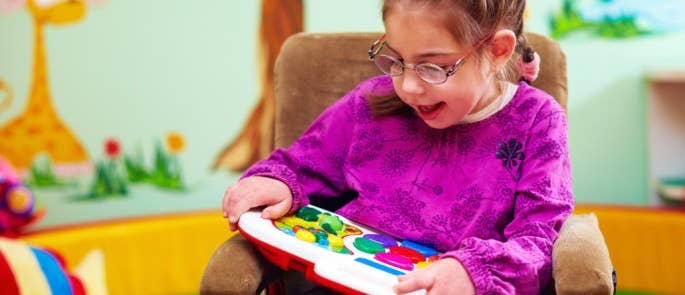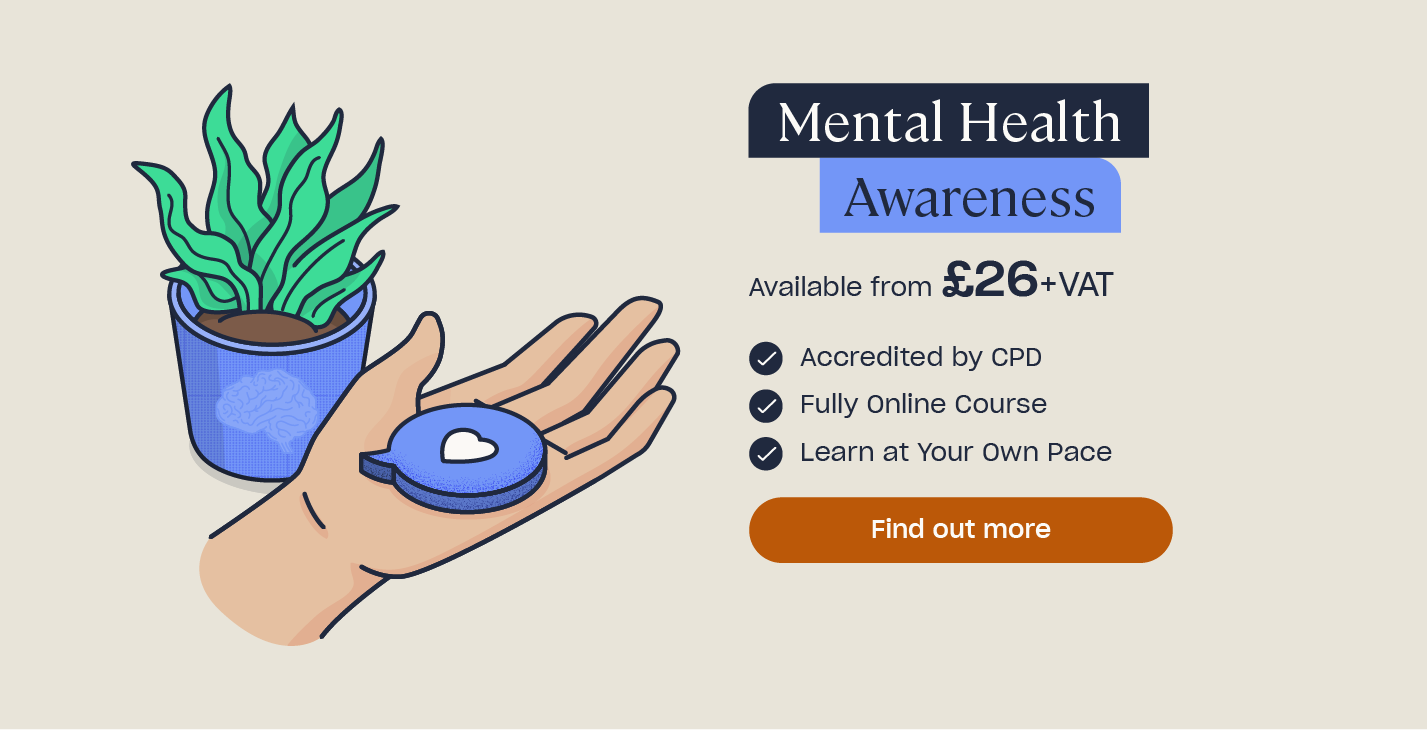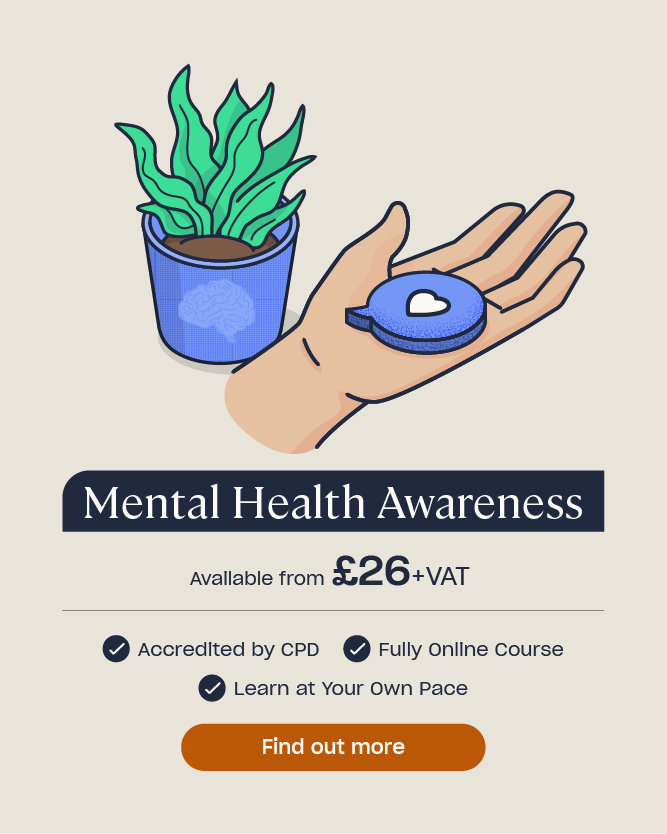How to Support Individuals with Learning Disabilities
A learning disability affects how a person learns information, understands information and communicates. This can create difficulties when learning new skills, coping independently and when faced with new or complex information. Therefore, people with learning disabilities may need extra support or care.
Around 1.5 million people in the UK have a learning disability. They can be mild, moderate, severe or profound. The signs of a learning disability vary from person to person, however they do not disappear or become less severe over time, but are lifelong. This article explores supporting adults and children with learning disabilities and their relation to creativity, as well as mental health.
Supporting Individuals with Learning Disabilities
Learning disabilities are defined as a reduced intellectual ability which causes difficulty with everyday activities, for example household tasks, socialising or managing money. There are different types of learning disabilities ranging from mild to profound, which influences the level of care and support a person may need.
Mild – A person with a mild learning disability can usually hold a conversation and communicate their needs and wishes. They often care for themselves and complete daily tasks independently. However, they may need some support with complex tasks such as budgeting or filling out important documents.
Moderate – A person with a moderate learning disability can usually communicate their needs and wishes, however it may take them more time than someone with a mild learning disability. They may need support with caring for themselves, but many can carry out daily tasks independently.
Severe – A person with a severe learning disability can usually communicate using basic words or gestures. They may need support when carrying out daily tasks such as cleaning and cooking, however many can complete their own personal care needs. Some people with a severe learning disability may have additional medical needs or need support with mobility.
Profound – A person with a profound learning disability usually has a severe learning disability as well as other medical conditions or disabilities. This significantly impacts their ability to communicate and they may have a very limited understanding of information. People with a profound learning disability need a carer or carers to help them with most aspects of their everyday life such as eating, washing and using the toilet.
Some learning disabilities are diagnosed at birth, such as Down’s Syndrome. Other learning disabilities may not be diagnosed until a child is old enough to walk or talk. Different children develop reading and writing skills at different speeds, so if they have trouble with their ability this does not mean they have a learning disability. However, there are some common signs to look out for, such as problems with reading or writing or trouble with following instructions.

It is important to remember that only a professional can diagnose a learning disability.
Each learning disability has its own signs. However, not every person with a particular disability will have all of the signs and it will differ from person to person.
Common Learning Difficulties in the UK
It is estimated that up to 1 in 10 people in the UK have some degree of dyslexia. Dyslexia affects how people process language, making everyday tasks such as reading and writing very difficult. It is a lifelong problem however, there is support available to help both children and adults with dyslexia.
Dysgraphia is a nervous system problem but is similar to dyslexia as it affects a person’s writing abilities. This causes problems with handwriting, spelling and putting thoughts or ideas down on paper. It is usually noticed in children at school, with signs including a cramped grip, difficulty with spacing when writing, or unfinished words and letters.
Dyscalculia however, affects approximately 3-6% of the UK population and is a condition that affects a person’s mathematical ability. It is often noticed in young children as difficulty to count or recognise numbers, which develops into difficulties solving maths problems or memorising multiplication sums in later years.
Certain conditions are often associated with learning disabilities or misunderstood as a learning disability such as autism or ADHD (attention deficit hyperactivity disorder). This is a common misconception, however there is a higher chance that a person will have certain conditions if they have a learning disability.
For example, 30% of people with epilepsy have a learning disability and the more severe the learning disability, the more likely the person is to have epilepsy. Autism is also often mistaken for a learning disability, however it is a developmental disorder, not a learning disability or mental health problem. It occurs in 1% of the population, yet 60-70% of people with autism also have a learning disability. Another condition often associated with learning disabilities is Down’s syndrome as everyone with down’s syndrome has some degree of learning disability, as do many people with cerebral palsy.
How to support Adults with Learning Disabilities
Everyone deserves an amazing life, however this is often harder to achieve for people with a learning disability. Therefore, it is important that the right support is available so they can live an independent and fulfilled life.
When supporting adults with learning disabilities, there is no universal approach. Every individual is different and has different needs, so their support should reflect this and be personalised to the individual. Nevertheless, there are tips and approaches that have proven successful, for example certain methods of communication like Makaton.
Makaton is one of the leading communication programmes in the UK. It combines signs, symbols and speech to give people with learning disabilities options to communicate. It allows people to express themselves independently through a method best suited to them.

The main importance is to educate yourself, as knowing what information or training is available will ensure you can support each individual to the highest standard.
Communication is imperative to convey wants or needs. Considering tone of voice, body language and the words you are using will help establish and maintain communication with the person you are supporting. Use easy or simple words and sentences, follow their speed or pace and use their preferred method of communication for the best success.
Another way to support adults with learning disabilities is to encourage them to have meaningful relationships. Having the skills and knowledge needed to support people with their relationships is essential, be it family, friendship or romantic relationships.
Despite the lack of a universal method to support adults with learning disabilities, there is a framework describing the skills and knowledge ideal for the role. The Department of Health and Social Care commissioned the Learning Disabilities Core Skills Education and Training Framework (2016) in collaboration with Health Education England, Skills for Care and Skills for Health. This framework outlines the skills, knowledge and behaviours people supporting adults with learning disabilities should bring to their work:
- Understand learning disabilities as well as identify and assess them.
- Promote health and wellbeing including nutrition and physical health.
- Provide personalised care and support that empowers their independence.
- Be aware of risk, legislation and safeguarding.
- Confidence in leadership and management, continual education and personal development.
Learning Disabilities in Children
Children develop at different rates and many children struggle with different subjects at school from time to time. Since difficulties with reading, writing and maths are recognisable problems during the school years, the signs and symptoms of learning disabilities are most often diagnosed during that time.

Learning disabilities are not easy to identify and differ from child to child. There is no set list of symptoms or signs specific to a certain learning disability that will provide definitive proof, however there are a few signs to be aware of, such as difficulty when:
- Telling left from right
- Reversing letters, words or numbers
- Recognising patterns
- Sorting items by size or shape
- Understanding or following instructions
- Coordinating body movements
- Remembering things
- Completing tasks using hands such as colouring, cutting or drawing
- Understanding the concept of time
If you suspect your child has a learning disability, do not hesitate to seek professional guidance. The sooner you receive a diagnosis, the sooner you can get the right support for your child.
As the parent of a child with a learning disability, your main job is to provide unconditional love and support to help them become confident and determined with a strong sense of self-worth. You cannot ‘cure’ the learning disability, instead you can equip them with the emotional and social skills to overcome any challenges they face.
Top Tip
Some top tips for supporting your child with a learning disability include:
Remember your priorities – the way you behave and respond to obstacles you face has a big impact on your child. Try not to let problems distract you from what’s really important – your child’s happiness.
You’re the expert – educate yourself about new research, new therapies and educational techniques. Amidst seeking help from professionals, remember you are the foremost expert on your child.
Be your child’s biggest advocate – being a proactive parent will increase your chances of being heard, even if you have to speak up time and time again. Although frustrating at times, remaining calm and reasonable but also firm, will make a difference.
Remember the influence you have – children learn through observation and if you have a positive and optimistic outlook, your child is likely to follow. Facing and overcoming challenges will help your child become stronger and more resilient.
Children with learning disabilities can and do succeed. As long as your child is determined and has a positive, optimistic attitude they will go far. The most important thing you can do is encourage and support them.
Learning Disability and Mental Health
Mental health issues affect a person’s mood, thinking and behaviour. Learning disabilities are not mental health problems, however people with learning disabilities often experience mental health problems.
40% of people with a learning disability have mental ill-health but struggle to get a diagnosis. Often symptoms are thought of as part of the learning disability and not mental health. Over a quarter of young people with both a learning disability and a mental health problem have not had any contact with mental health services due to delayed or poor identification by professionals. Of those that are referred for support, nearly one in four families had to wait more than six months for an appointment within a mental health service.
Young people with learning disabilities are exposed to a range of risk factors that can have a serious impact on their mental health and wellbeing. Yet despite this, government and local services are failing to identify and respond to their needs.
We need to better support those working with young people with learning disabilities to ensure they can spot the signs of emerging mental health problems. We also need to improve our understanding of what interventions are most effective for young people with dual or multiple needs.”
Dr Pooky Knightsmith (Chair of Children and Young People’s Mental Health Coalition)
Unlike learning disabilities that are permanent, mental health can develop at any time or age and can improve with treatment. People with learning disabilities may have struggle with their mental health due to experiencing things such as abuse or due to other peoples’ negative opinions. No matter what the cause, encouraging that person to talk about their feelings or what makes them worried is important. However, you should still respect their privacy and give them the necessary space.
Art Therapy for Learning Disabilities
Art therapy is an amazing way of exploring thoughts and feelings without restrictions or worries of being judged. Art gives people the chance to express themselves, build confidence and have a sense of achievement without the fear of failing or doing something wrong.
Art therapy provides:
- Private and non-judgemental space
- A place to talk about difficult things
- Help with relationships
- A chance to be understood and to understand your feelings
- An opportunity to express yourself

Although there is no concrete evidence to suggest a link between creativity and dyslexia, many famous artists and musicians are dyslexic. The Yale Centre for Dyslexia and Creativity states that high creativity in children and adults with dyslexia is a result of the dedication and time spent exploring new methods of learning.
Art therapy is suitable for adults and children no matter which learning disability they have or how severe it is. You do not need to have any experience of art, the therapist will introduce you to the materials and help you gain confidence using the equipment.
Learning disabilities affect how people learn information, understand information and communicate. 1.5 million people in the UK have a learning disability, therefore raising awareness and ensuring those who support people with learning disabilities have the correct guidance and training is essential.
Further Resources:
- Mental Health Awareness Course
- Equality & Diversity Training Course
- How to Talk About Mental Health
- What are Specific Learning Difficulties (SpLDs)?
- What is the Local Offer?
- How to Support Children with Disabilities to be Active
- 8 Useful Apps to Help with Dyslexia
- Recognising the Signs of Dyslexia in Children
- How Can I Ensure That I Am Safeguarding Adults with Learning Disabilities?







